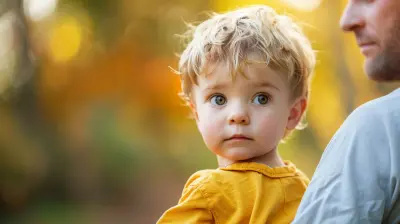Emotional Expression in Introverts vs. Extroverts: Key Differences
21 March 2025
When it comes to expressing emotions, we all have our own unique ways. You might have noticed that some people wear their hearts on their sleeves, while others keep their emotions locked away like a hidden treasure chest. This divide often comes down to personality types, specifically introverts and extroverts. But what exactly are the key differences in emotional expression between these two groups? And why does it matter? Let’s dig into the fascinating world of introverts and extroverts to see how they express their emotions differently.

What Are Introverts and Extroverts?
Before we jump into emotional expression, let’s first define what we mean by introverts and extroverts.- Introverts tend to be more reserved, inward-focused, and energized by spending time alone or in small, familiar groups. They often enjoy deep, meaningful conversations but could feel drained by large social gatherings.
- Extroverts, on the other hand, are outgoing, outward-focused, and energized by being around other people. They thrive in social environments and usually have no problem striking up conversations with strangers.
Now that we’ve set the stage, let's explore how these personality types express their emotions.

The Emotional Landscape of Introverts
1. Internalizing Emotions
Introverts are like icebergs when it comes to emotions—there’s a lot more going on beneath the surface than what you see. They tend to internalize their emotions, processing them quietly and privately. For an introvert, emotional expression often happens in their own heads before it ever makes its way out into the world.For example, an introvert feeling sad or anxious might not immediately reach out for support. Instead, they’re more likely to reflect on their emotions and give themselves time to figure out how they feel. They might journal about it, meditate, or simply spend time alone to sort through their emotions. This doesn’t mean introverts don’t feel deeply—they often feel very deeply—but they’re less likely to show it.
2. Selective Sharing
When an introvert does express their emotions, it’s usually to a select group of people they trust. They may not be the type to broadcast their feelings on social media or openly discuss their emotions in a large group setting. Instead, they’ll choose a few close friends or family members to open up to.This selective sharing can sometimes make introverts seem distant or hard to read. But in reality, they just need to feel safe and comfortable before letting their guard down.
3. Non-Verbal Cues
Introverts also rely heavily on non-verbal cues to express their emotions. They may not always verbalize how they’re feeling, but their body language, facial expressions, and tone of voice can speak volumes. A slight frown, a tense body posture, or even a long silence can tell you a lot about what’s going on inside an introvert’s mind.4. Overthinking and Emotional Depth
Introverts tend to be thinkers, and that trait extends to their emotions. They can get caught up in overthinking their feelings, dissecting every detail to understand exactly what’s happening. This can lead to a deep emotional understanding, but it can also make it hard for them to let go of negative emotions. Imagine their emotions as a puzzle they’re trying to solve—sometimes, they just can’t stop until every piece is in place.5. Emotional Expression Through Creative Outlets
For some introverts, expressing emotions verbally feels unnatural or uncomfortable. Instead, they might channel their emotions through creative outlets such as writing, art, or music. These outlets allow them to express themselves without the pressure of direct communication. It’s their way of revealing what’s going on inside without having to say it out loud.
The Emotional Landscape of Extroverts
1. Externalizing Emotions
While introverts tend to keep their emotions to themselves, extroverts are far more likely to wear their hearts on their sleeves. Extroverts externalize their emotions, meaning they express what they’re feeling openly and immediately. If an extrovert is happy, you’ll know it. If they’re upset, you’ll know that too.Unlike introverts, extroverts typically don’t spend much time analyzing their feelings before expressing them. They’re more inclined to share their emotions as they experience them, which can make them seem more emotionally transparent.
2. Seeking Social Support
One of the key differences between introverts and extroverts is how they handle emotional stress. While introverts might retreat inward to process their emotions, extroverts are more likely to seek out social support. When an extrovert is feeling down, they’ll often turn to friends or family to talk things through.In fact, many extroverts find that social interaction helps them process their emotions. Talking things out with others allows them to gain perspective and feel validated. It’s almost like they need to “think out loud” to fully understand their feelings.
3. Emotional Energy in Social Settings
Extroverts draw energy from social interactions, and this extends to their emotional expression as well. Being around others amplifies their emotions, whether positive or negative. When an extrovert is happy, their excitement can be contagious. But when they’re upset, they may also seek out others to vent or express their frustration.For extroverts, emotions are often a shared experience. They thrive on the emotional energy of others and tend to express their feelings in a way that invites others to join in.
4. Quick Emotional Recovery
Because extroverts tend to process and express their emotions quickly, they’re often able to recover from negative feelings faster than introverts. Once they’ve had a chance to talk things out or vent their frustrations, they’re usually ready to move on. They don’t dwell on their emotions the way introverts might.This doesn’t mean extroverts don’t feel things deeply; it just means they’re more likely to express and release those emotions in real-time, rather than holding on to them.
5. Verbal Expression
If introverts tend to communicate emotions through non-verbal means, extroverts are the opposite—they’re all about verbal expression. Extroverts are often comfortable talking about their emotions, whether it’s in a casual conversation with a friend or a heated debate. They’re more likely to express their feelings out loud and in the moment, which can sometimes come across as impulsive.
Key Differences in Emotional Expression: Introverts vs. Extroverts
Now that we’ve explored the emotional landscapes of both introverts and extroverts, let’s break down the key differences in how they express emotions.1. Internal vs. External Processing
The biggest difference between introverts and extroverts is how they process emotions. Introverts tend to internalize their emotions, thinking them through before expressing them, while extroverts externalize their emotions, expressing them openly as they experience them.2. Selective Sharing vs. Open Sharing
Introverts are more selective about who they share their emotions with, often confiding only in a few close people. Extroverts, on the other hand, are more likely to express their emotions to a wider audience, seeking validation and support from social interactions.3. Non-Verbal vs. Verbal Expression
Introverts often express their emotions through non-verbal cues like body language or creative outlets, while extroverts are more likely to express their emotions verbally, sharing their feelings in real-time.4. Emotional Energy Sources
For introverts, emotional expression is often a solitary activity, while extroverts draw emotional energy from social interactions. This means extroverts are more likely to express their emotions in group settings, while introverts prefer to process their emotions alone or in small, intimate groups.5. Emotional Recovery
Extroverts tend to recover from negative emotions more quickly because they express and release their feelings in real-time. Introverts, on the other hand, might take longer to process and let go of negative emotions, as they tend to overthink and analyze their feelings before expressing them.Why Understanding These Differences Matters
So, why does it matter how introverts and extroverts express their emotions? Understanding these differences can improve your relationships, whether it’s with friends, family, or coworkers. It can help you communicate more effectively and be more empathetic toward others.For example, if you know someone is introverted, you might recognize that they need time to process their emotions before they’re ready to share. On the flip side, if you’re dealing with an extrovert, you might understand that they need to talk things out immediately to feel better.
Additionally, understanding your own emotional style can help you navigate your feelings in a healthier way. Whether you’re an introvert or an extrovert, recognizing your emotional tendencies can lead to better self-awareness and emotional well-being.
Final Thoughts
Emotional expression is a deeply personal and highly individualized process, and it’s fascinating to see how personality types shape this aspect of our lives. While introverts and extroverts may express their emotions differently, neither approach is better or worse—it’s simply a reflection of how we’re wired.The next time you find yourself wondering why a friend or family member is reacting to a situation differently than you are, remember that their personality might play a big role in how they express their emotions. By embracing these differences, we can all learn to communicate more effectively and build stronger, more empathetic relationships.
all images in this post were generated using AI tools
Category:
Emotional ExpressionAuthor:

Paulina Sanders
Discussion
rate this article
7 comments
Chloe McClary
In the silent depths where introverts dwell, Feelings weave a private spell. While extroverts paint emotions wide, A vibrant canvas, a lively tide. Both paths hold truth, both hearts unfold, Each expression unique, a story told— In quiet whispers or boisterous cheer, Emotions bridge the silent sphere.
April 6, 2025 at 3:16 AM

Paulina Sanders
Thank you for beautifully capturing the essence of emotional expression in both introverts and extroverts. Your poem highlights the richness of each perspective and the value of diverse emotional landscapes.
Noelle Kim
Wow, who knew introverts had feelings too? Shocking revelation of the century!
April 4, 2025 at 3:46 PM

Paulina Sanders
It's a common misconception! Introverts experience a wide range of emotions, just like extroverts, but they may express them differently.
Reid Reyes
Introverts feel deeply; extroverts express loudly—both valid!
April 3, 2025 at 3:29 PM

Paulina Sanders
Thank you for your insightful comment! Both introverted and extroverted expressions of emotion are indeed valid and enrich our understanding of human experience.
Erica Fry
This article brilliantly highlights the emotional nuances between introverts and extroverts! It’s refreshing to see the complexities of feelings explored, reminding us that whether we’re quiet or loud, our emotions connect us all. Great read!
April 2, 2025 at 3:07 AM

Paulina Sanders
Thank you so much for your kind words! I'm glad you found the article insightful and relatable.
Heidi Hardy
This article insightfully highlights the nuanced emotional landscapes of introverts and extroverts. However, it could benefit from exploring how societal expectations shape these expressions, influencing self-perception and interpersonal dynamics beyond mere personality traits.
April 1, 2025 at 4:32 PM

Paulina Sanders
Thank you for your thoughtful feedback! Exploring societal expectations would indeed enrich the discussion on emotional expression and its impact on self-perception and relationships. I appreciate your insight!
Lorna McGrath
Great insights! Understanding both perspectives enriches emotional awareness.
March 25, 2025 at 5:43 AM

Paulina Sanders
Thank you! I'm glad you found the insights valuable. Understanding different perspectives is crucial for enhancing emotional awareness.
Sylvan McIntire
This article insightful highlights the distinct ways introverts and extroverts express emotions. Understanding these differences can enhance our communication and relationships, fostering greater empathy and connection. It’s a valuable read for anyone looking to navigate social dynamics more effectively.
March 24, 2025 at 3:34 PM

Paulina Sanders
Thank you for your thoughtful comment! I'm glad you found the article insightful and beneficial for enhancing communication and relationships.
MORE POSTS

Defense Mechanisms: How Our Minds Protect Us from Pain

The Influence of Screen Time on a Child’s Brain

Carl Jung and the Collective Unconscious: A Journey into Archetypes

Emotional Trauma in Relationships: Healing Together

Understanding Emotional Development in Toddlers: A Psychological Perspective

The Role of Meditation in Managing Mental Health